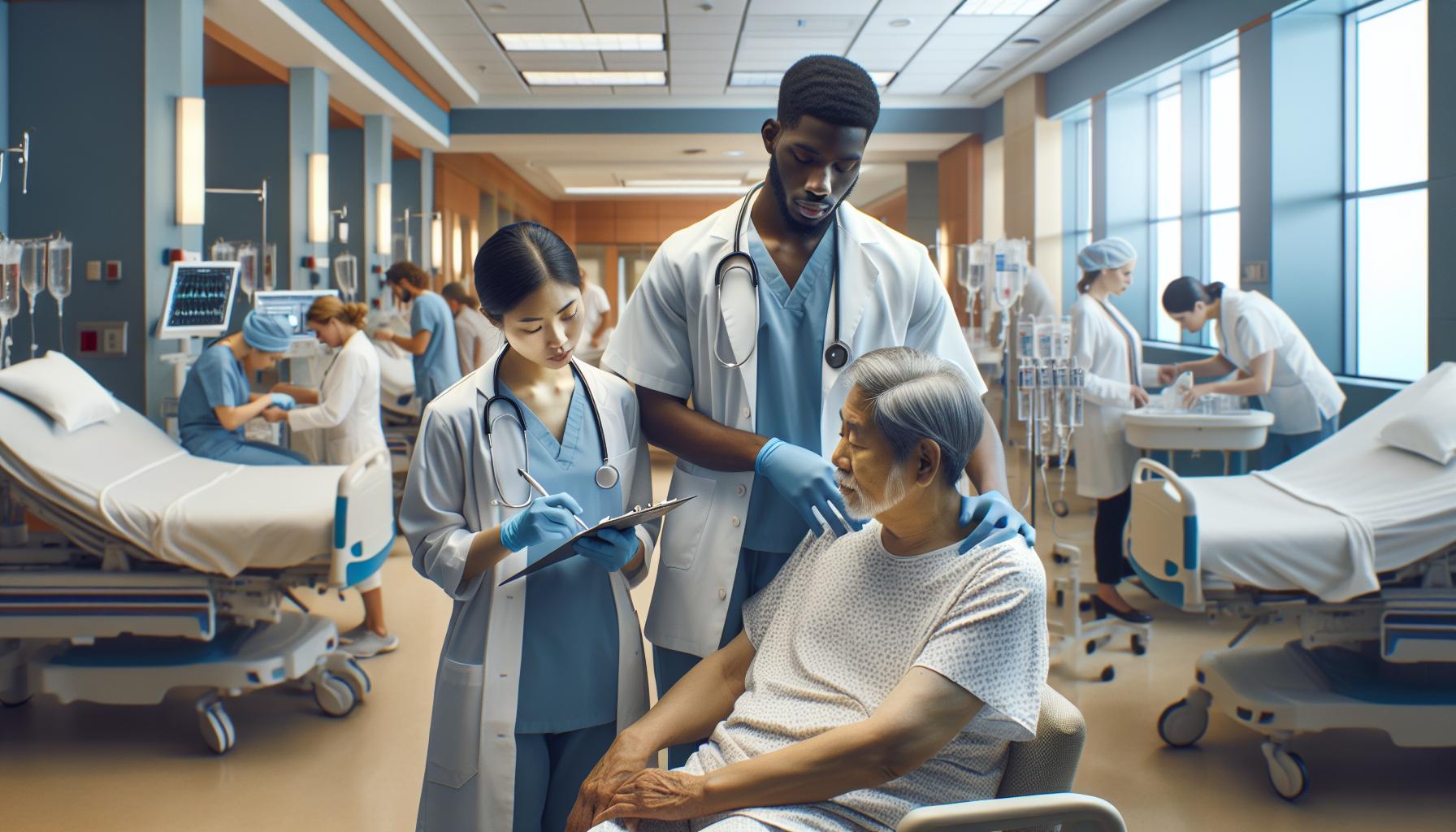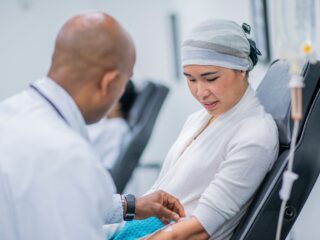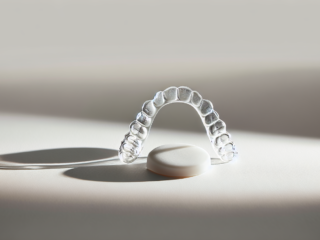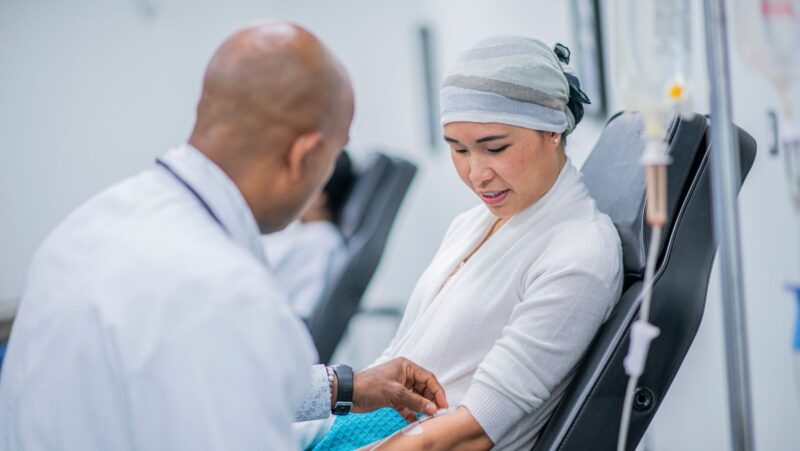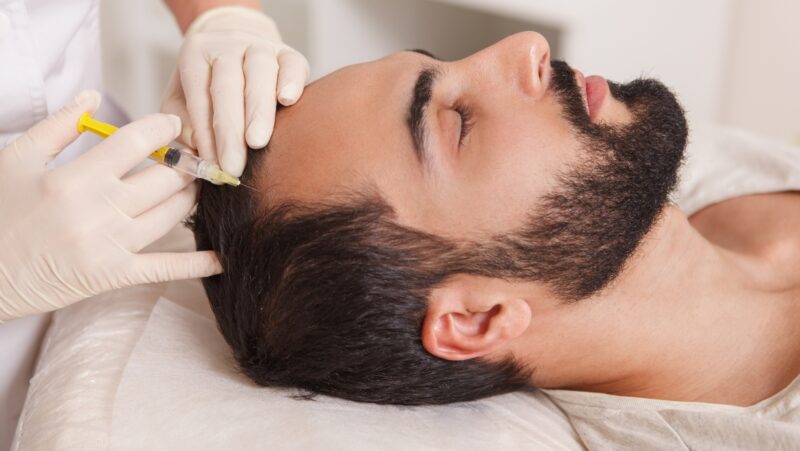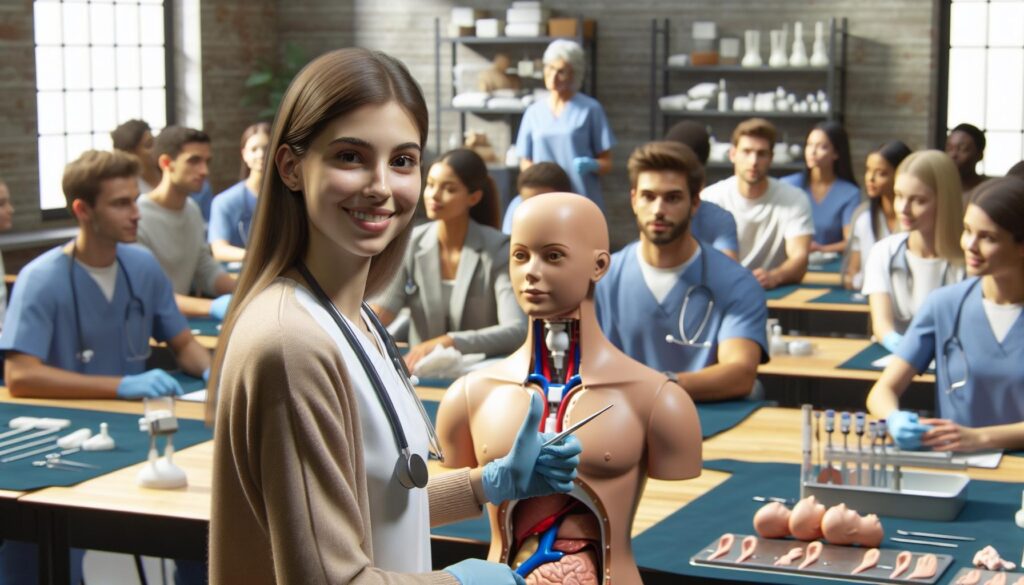
Healthcare extends far beyond doctors and nurses, and that’s where allied health science professionals play a vital role. An allied health science degree prepares students for diverse careers in healthcare support services essential to patient care and well-being.
This versatile degree program combines scientific knowledge with practical skills offering students a pathway into numerous healthcare specialties. From diagnostic imaging and laboratory technology to physical therapy and occupational health these professionals make up nearly 60% of the healthcare workforce. As healthcare continues to evolve the demand for qualified allied health professionals continues to grow creating abundant career opportunities for graduates.
What is Allied Health Science Degree
Allied health science degrees combine medical theory with hands-on clinical training to prepare students for healthcare careers. The programs integrate scientific principles with practical healthcare applications across multiple disciplines.
Core Components and Curriculum
An allied health science curriculum features five essential components:
- Biological Sciences: Anatomy physiology biochemistry microbiology
- Clinical Skills: Patient assessment vital signs medical procedures sterile techniques
- Healthcare Technology: Medical equipment operation diagnostic tools electronic health records
- Professional Ethics: Patient privacy HIPAA compliance cultural competency
- Research Methods: Data analysis healthcare statistics evidence-based practice
The curriculum structure includes:
| Component | Credit Hours | Practical Hours |
|---|---|---|
| Core Sciences | 45-50 | 200 |
| Clinical Training | 30-35 | 600 |
| Specialization Courses | 20-25 | 400 |
| Research Projects | 10-15 | 100 |
Different Specialization Options
Allied health programs offer diverse specialization paths:
- Diagnostic Services
- Medical Laboratory Technology
- Radiologic Technology
- Nuclear Medicine Technology
- Therapeutic Services
- Physical Therapy Assistant
- Respiratory Therapy
- Occupational Therapy Assistant
- Technical Services
- Healthcare Information Management
- Medical Equipment Technology
- Clinical Laboratory Management
- Support Services
- Health Administration
- Clinical Research Coordination
- Patient Care Technology
Each specialization includes focused coursework specific modules clinical rotations that align with career objectives in respective healthcare fields.
Career Opportunities in Allied Health
Allied health science graduates access diverse career paths across healthcare settings. The degree opens doors to both clinical and non-clinical roles, with employment rates showing 95% job placement within six months of graduation.
Clinical Roles
Clinical allied health professionals work directly with patients in diagnostic treatment settings. Common positions include:
- Respiratory Therapists managing breathing treatments in hospitals ($62,810 median annual salary)
- Physical Therapy Assistants conducting rehabilitation exercises ($59,440 median annual salary)
- Medical Laboratory Technologists analyzing patient samples ($54,180 median annual salary)
- Radiologic Technologists operating imaging equipment ($61,900 median annual salary)
- Occupational Therapy Assistants helping patients regain daily living skills ($61,510 median annual salary)
| Clinical Role | Average Growth Rate (2021-2031) | Entry-Level Education |
|---|---|---|
| Respiratory Therapist | 14% | Associate’s Degree |
| Physical Therapy Assistant | 26% | Associate’s Degree |
| Medical Lab Tech | 7% | Bachelor’s Degree |
| Radiologic Tech | 6% | Associate’s Degree |
| OT Assistant | 23% | Associate’s Degree |
- Healthcare Data Analysts examining medical statistics ($67,190 median annual salary)
- Medical Device Sales Representatives marketing healthcare equipment ($81,020 median annual salary)
- Health Information Managers organizing patient records ($55,560 median annual salary)
- Clinical Research Coordinators managing medical studies ($63,920 median annual salary)
- Healthcare Quality Specialists monitoring care standards ($58,770 median annual salary)
| Non-Clinical Role | Key Skills Required | Work Environment |
|---|---|---|
| Data Analyst | Statistics Database Management | Office Setting |
| Sales Rep | Communication Marketing | Field-based |
| Info Manager | Records Administration | Hospital/Clinic |
| Research Coordinator | Project Management | Research Facility |
| Quality Specialist | Compliance Monitoring | Healthcare Facility |
Educational Requirements
The allied health science degree establishes specific academic benchmarks for program admission. These requirements combine foundational education with specialized healthcare prerequisites to prepare students for advanced medical studies.
Academic Prerequisites
Entry into an allied health science program requires:
- High school diploma or equivalent with a minimum GPA of 3.0
- 4 years of high school math including algebra calculus
- 3 years of laboratory sciences (biology chemistry physics)
- Standardized test scores (SAT: 1100+ or ACT: 22+)
- Completion of prerequisite college courses with a grade of C or higher:
- General Biology (4 credits)
- Human Anatomy & Physiology (8 credits)
- General Chemistry (4 credits)
- College Mathematics (3 credits)
- English Composition (3 credits)
- 1,000+ supervised clinical hours across various healthcare settings
- Hands-on experience in specialized laboratories (120 hours)
- Professional certification requirements:
- Basic Life Support (BLS)
- CPR/First Aid certification
- HIPAA compliance training
- Direct patient care experience through:
- Hospital rotations (400 hours)
- Outpatient clinics (200 hours)
- Rehabilitation centers (200 hours)
- Diagnostic laboratories (200 hours)
- Documentation of clinical competencies through:
- Skills checklists
- Performance evaluations
- Case study presentations
Top Universities Offering Allied Health Programs
Ivy League Universities
- Harvard Medical School offers specialized allied health programs with a 95% graduation rate
- Yale School of Medicine provides 15 allied health concentrations with state-of-the-art simulation labs
- University of Pennsylvania features integrated clinical rotations at 8 affiliated hospitals
Public Research Universities
- University of Michigan maintains partnerships with 25 healthcare facilities for clinical placements
- UCLA Health Sciences Division hosts 12 allied health programs with advanced research facilities
- Ohio State University College of Medicine offers 20 allied health specializations
Private Medical Universities
- Mayo Clinic College of Medicine operates 3 major campuses with specialized allied health tracks
- Johns Hopkins School of Medicine provides access to 5 teaching hospitals
- Duke University Medical Center features 10 allied health degree options
| University | Program Duration | Clinical Hours | Job Placement Rate |
|---|---|---|---|
| Harvard | 4 years | 1,200 | 98% |
| Yale | 4 years | 1,100 | 96% |
| Mayo Clinic | 3-4 years | 1,400 | 97% |
| UCLA | 4 years | 1,000 | 94% |
- Dedicated research facilities with $50 million annual funding
- Direct patient care experience starting from year 2
- International exchange programs with 15 partner institutions
- Dual degree options combining clinical expertise with business administration
- Advanced simulation centers equipped with $2 million worth of technology
- Minimum GPA: 3.5 on a 4.0 scale
- Prerequisites: 32 credit hours in sciences
- Two letters of recommendation from healthcare professionals
- 100 hours of documented healthcare volunteer experience
- Personal statement demonstrating clinical interest
Salary Potential and Job Outlook
Allied health science graduates earn competitive salaries across various specializations in the healthcare industry. Entry-level positions start at $45,000 annually, with experienced professionals earning up to $95,000 based on specialization and location.
| Position | Median Annual Salary | Job Growth Rate (2021-2031) |
|---|---|---|
| Physical Therapy Assistant | $61,180 | 26% |
| Respiratory Therapist | $68,190 | 14% |
| Medical Laboratory Technologist | $57,800 | 7% |
| Radiologic Technologist | $63,120 | 6% |
| Occupational Therapy Assistant | $61,520 | 25% |
Geographic location impacts earning potential significantly:
- Metropolitan areas offer 15-25% higher salaries than rural settings
- Coastal regions provide average salaries 20% above the national median
- Specialized healthcare facilities pay 10-15% more than general hospitals
- Private practices compensate 5-10% higher than public institutions
Employment prospects remain strong with:
- 95% job placement rate within 3 months of graduation
- 88% retention rate after 5 years in the field
- 78% of employers offering advancement opportunities
- 92% of positions including comprehensive benefits packages
- 18% overall growth rate across allied health professions through 2031
- 500,000 new allied health positions projected nationwide
- 35% increase in specialized facility openings
- 25% expansion in outpatient care centers
Skills and Competencies Needed
Technical Skills
- Operating medical diagnostic equipment: CT scanners MRI machines x-ray devices
- Using laboratory instruments: microscopes centrifuges spectrophotometers
- Maintaining electronic health records through specialized software platforms
- Performing clinical procedures: blood draws vital signs monitoring specimen collection
- Implementing infection control protocols in healthcare settings
Analytical Skills
- Interpreting diagnostic test results from multiple data sources
- Evaluating patient symptoms medical histories treatment responses
- Analyzing healthcare data to identify trends patterns outcomes
- Applying critical thinking to complex medical scenarios
- Processing quantitative information for research studies clinical trials
Communication Skills
- Explaining medical procedures treatment plans to patients families
- Collaborating with healthcare teams across multiple departments
- Documenting patient information accurately completely
- Presenting clinical findings to medical professionals
- Providing clear instructions for patient care home treatment
Professional Attributes
- Maintaining patient confidentiality HIPAA compliance
- Demonstrating attention to detail in medical procedures
- Managing time effectively in fast-paced environments
- Adapting to new medical technologies treatment protocols
- Practicing ethical decision-making in patient care
Physical Requirements
- Standing walking for extended periods (8-12 hour shifts)
- Lifting moving patients equipment (up to 50 pounds)
- Performing repetitive motions with precision accuracy
- Maintaining manual dexterity for clinical procedures
- Operating equipment in various body positions postures
- Following universal precautions infection control measures
- Implementing emergency response protocols
- Handling hazardous materials according to safety guidelines
- Operating equipment within established safety parameters
- Maintaining sterile environments during medical procedures
Each skill category aligns with specific coursework clinical training requirements ensuring graduates meet industry standards professional certifications. These competencies reflect current healthcare practices technology applications while emphasizing patient safety quality care delivery.
Dynamic and Evolving Healthcare
An allied health science degree stands as a gateway to diverse and rewarding careers in healthcare. The combination of rigorous academic coursework hands-on clinical training and specialized skills development creates well-rounded professionals ready to meet the growing demands of modern healthcare.
With excellent job prospects impressive salary potential and numerous advancement opportunities allied health science graduates play vital roles in delivering quality patient care. The field’s projected growth rate of 18% through 2031 reflects the essential nature of these healthcare professionals and their lasting impact on the medical community.
Students who pursue this degree path will find themselves well-positioned for success in a dynamic and evolving healthcare landscape where their expertise and dedication directly contribute to improved patient outcomes.

